Initiated and coordinated by Professor Maria Baghramian, PERITIA brought together philosophers, social and natural scientists, policy experts, ethicists, psychologists, media specialists and civil society organisations from 11 partner institutions in 9 European countries.
Advisory Board
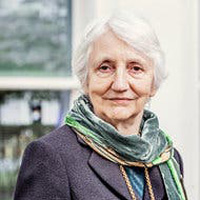
Onora O’Neill
Emeritus Professor of Philosophy
University of Cambridge
Onora O’Neill
Prof. O’Neill lectures and writes on justice and ethics, accountability and trust, justice and borders, as well as on the future of universities, the quality of legislation and the ethics of communication. She is a former President of the British Academy (2005–2009) and chaired the Nuffield Foundation (1998–2010). Prof. O’Neill combines writing on political philosophy and ethics with a range of public activities. In 2003, she was the founding President of the British Philosophical Association (BPA). In 2013 she held the Spinoza Chair of Philosophy at the University of Amsterdam. Until October 2006, she was the Principal of Newnham College, Cambridge, and she was chair in the Equality and Human Rights Commission until Apr 2016. She chaired the UK’s Equality and Human Rights Commission from 2012-16 and served on of the Medical Research Council and the Banking Standards Board until 2018. O’Neill’s work has earned her numerous honors and awards, including Holberg Prize and the million-dollar Berggruen Prize for Philosophy and Culture in 2017.
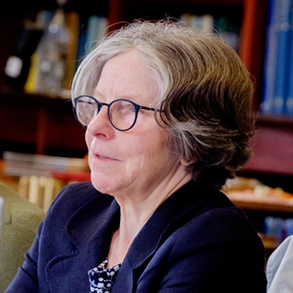
Susan Owens
Emeritus Professor of Environment and Policy
University of Cambridge
Susan Owens
Prof. Owens is a Fellow of the British Academy. She has researched and published widely in the field of environmental governance, focusing on policy processes in modern democracies and in particular on the role of knowledge, evidence, ideas and expertise in policy formation and change. She has previously worked on interpretations of sustainable development in theory and practice, and has theorised connections between environmental planning conflicts (especially those concerned with contentious technologies and infrastructures) and developments in wider domains of public policy. She held the King Carl XVI Gustaf Professorship of Environmental Science in 2008-9 (Stockholm Resilience Centre and Royal Institute of Technology [KTH]) and an Honorary Professorship at the University of Copenhagen, 2008-13. She was appointed OBE in 1998 and elected a Fellow of the British Academy in 2011. She holds Honorary Doctorates from KTH, Stockholm (2012) and the University of East Anglia (2015).
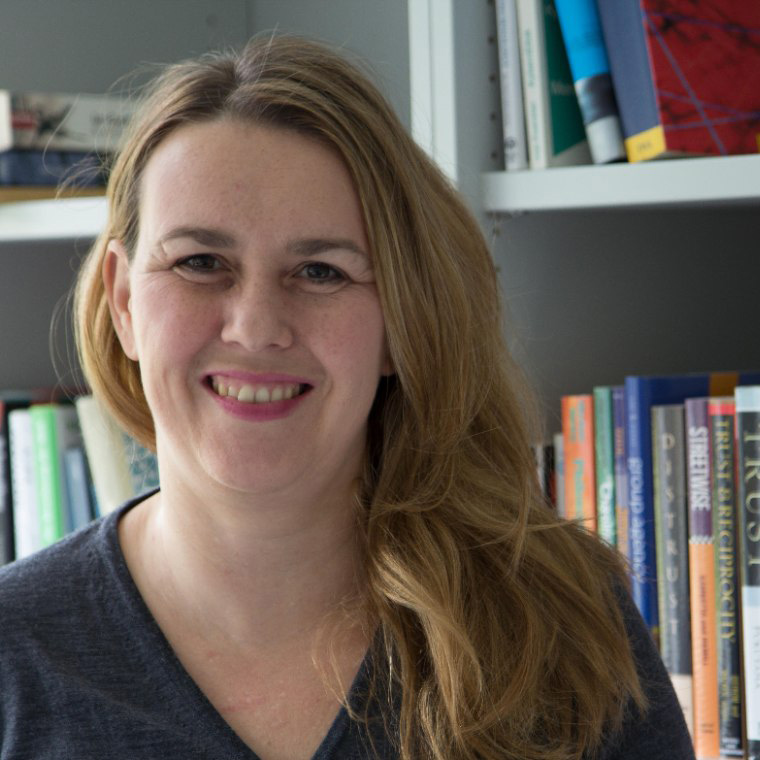
Judith Simon
Professor of Ethics in Information Technologies
University of Hamburg
Judith Simon
Prof. Simon is a member of the German Ethics Council and the Data Ethics Commission of the German Federal Government. She holds a MA in Psychology from the Free University Berlin and a PhD in Philosophy from the University of Vienna. From 2011 to 2014 she was employed as Senior Researcher at the Karlsruhe Institute of Technology, Institute for Technology Assessment and Systems Analysis focusing on technology assessment of ICT. Prior to joining the Universität Hamburg, she was Associate Professor (tenured) for Philosophy of Science and Technology at the IT University of Copenhagen as well as Principal Investigator of the project “Epistemic trust in socio-technical epistemic systems” (FWF-P23770) at the University of Vienna. In 2013 Prof. Simon received the Herbert A. Simon Award of the International Association of Computing and Philosophy for outstanding research in philosophy & computing. She was a visiting scholar at Stanford University and a guest researcher at the Department of Information Engineering and Computer Science at University of Trento as well as the Artificial Intelligence Research Institute (CSIC-IIIA) in Barcelona. She regularly lectures in Bachelor and Master programmes in Philosophy, Science and Technology Studies as well as various IT-related programmes, and serves on numerous editorial, executive and scientific advisory boards.
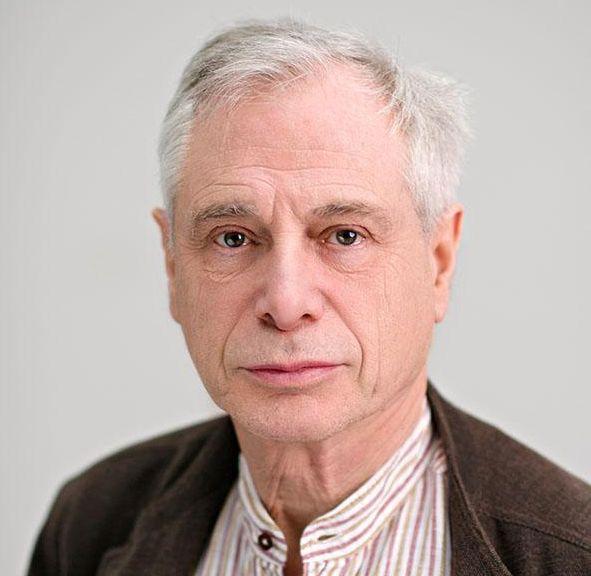
Dan Sperber
Emeritus Research Professorship
French Centre National de la Recherche Scientifique
Dan Sperber
Prof. Sperber holds a part-time professorship at the Department of Cognitive Science of the Central European University in Budapest, and is the director of the International Cognition and Culture Institute. He is a French social and cognitive scientist. He is the author numerous articles in anthropology, linguistics, philosophy and psychology and of three books: Rethinking Symbolism (1975), On Anthropological Knowledge (1985), and Explaining Culture (1996). In these three books, he developed a naturalistic approach to culture under the name of ‘epidemiology of representations’. Prof. Sperber is also the co-author, with Deirdre Wilson (Department of Linguistics, University College, London) of Relevance: Communication and Cognition (1986, 1995) and Meaning and Relevance (2012), which develop their cognitive approach to communication known as ‘Relevance Theory’. Both the epidemiology of representations and relevance theory have been influential and also controversial. He is Corresponding Fellow of the British Academy, Foreign honorary member of the American Academy of Arts and Sciences, and member of the Academia Europaea. He was the first laureate of the Claude Lévi-Strauss Prize in 2009.
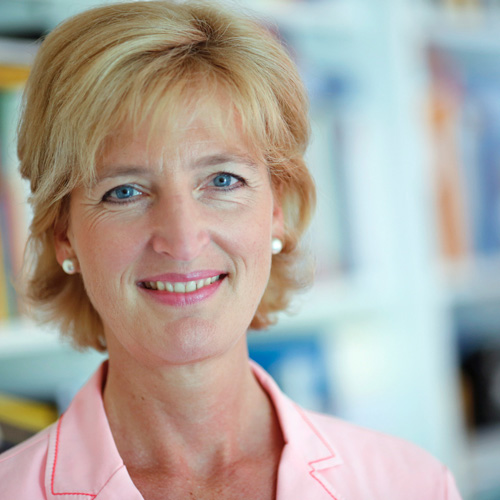
Christiane Woopen
Professor for Ethics and Theory of Medicine
University of Cologne
Christiane Woopen
Prof. Woopen is Head of the Research Unit Ethics and Vice Dean for Academic Development and Gender at the Medical Faculty of the University of Cologne. She received her medical degree from University of Bonn and worked in gynecology and obstetrics before focusing on bioethics. She is Executive Director of the Cologne Center for Ethics, Rights, Economics, and Social Sciences of Health (Ceres). Ceres was founded in 2013 as one of the first research centers in Germany specifically dealing with interdisciplinary approaches to conduct and foster integrative research in the area of health. Prof. Woopen is the coordinator and leader of several international and national research projects concerning ethical aspects of reproductive medicine, neuro-ethics, quality of life, ageing, digital autonomy and genome editing. She is also the former chair of the German Ethics Council, president of the 11th Global Summit of National Ethics/Bioethics Committees 2016 and, amongst other boards, a member of the International Bioethics Committee of UNESCO. In April 2017 she was appointed as Chair of the European Group on Ethics of Science and New Technologies and in July 2018 was appointed as co-speaker of the Data Ethics Commission of the Federal Government of Germany.
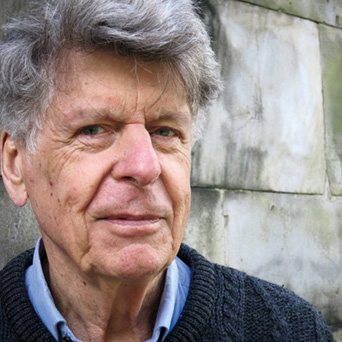
Göran Hermerén
Professor of Medical Ethics
Lund University
Göran Hermerén
Göran Hermerén is Senior Professor of Medical Ethics at Lund University (Sweden). From 2002 to 2010, he was President of the European Group on Ethics in Science and New Technologies. He is currently a member of the National Council on Medical Ethics in Stockholm and Chair of the Permanent Working Group for Science and Ethics of ALLEA (All European Academies). He has served on many governmental commissions in Sweden. In addition, he has served as external examiner in bioethics at the National University of Ireland, as a referee for international journals, and is involved in several on-going EU-funded research projects. He has published books and papers on research ethics, ethics of stem cell research, the goals of medicine and priority setting in health care and contributed to many encyclopedias.
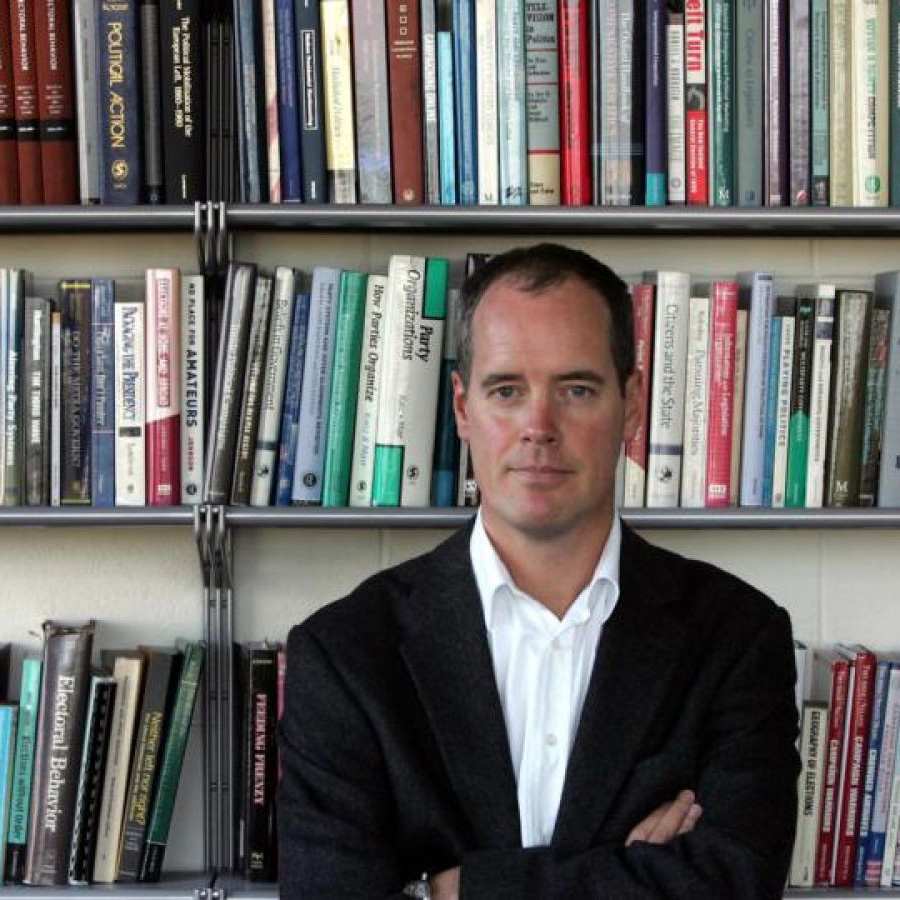
David Farrell
Professor of Politics
University College Dublin
David Farrell
Prof. Farrell is a member of the Royal Irish Academy. His current positions include: member of the Welsh Assembly’s Expert Panel on Electoral Reform; Chair of the Forum on Parliamentary Discipline established by the Ceann Comhairle (Speaker) of Dáil Éireann; and member of the international advisory boards of the Electoral Integrity project and Making Electoral Democracy Work project. He is a former President of the Political Studies Association of Ireland, and former Speaker of the Council of the European Consortium for Political Research. Prof. Farrell is a founding co-editor of the journal Party Politics. Prior to his move to Dublin in 2009, he was Professor and Head of Social Sciences at the University of Manchester. He is a specialist in the study of parties, elections, electoral systems and members of parliament. His current research focuses on the role of deliberation in constitutional reform processes. He is the ‘research leader’ of the Irish Citizens’ Assembly (funded by the Irish Research Council).
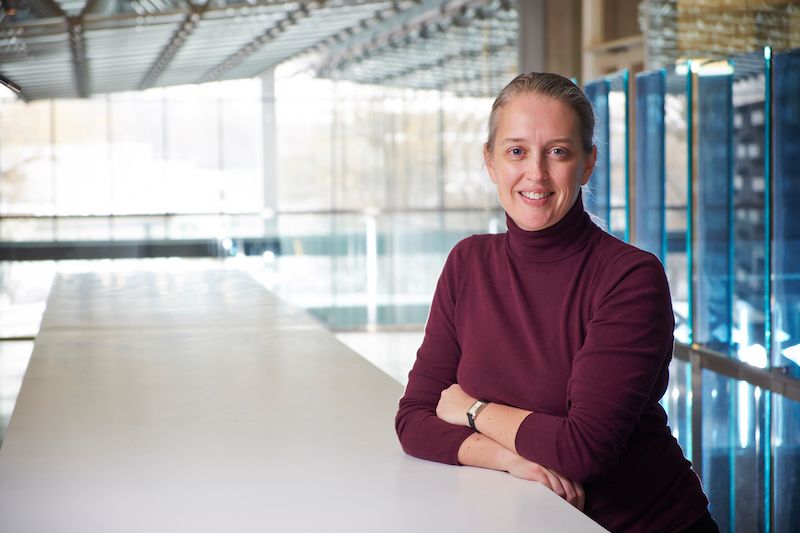
Heather Douglas
Professor of Philosophy
Michigan State University
Heather Douglas
Heather Douglas is an Associate Professor in the Department of Philosophy and a member of the Socially Engaged Philosophy of Science Group at Michigan State University. She received her Ph.D. from the History and Philosophy of Science Department at the University of Pittsburgh in 1998, and has held tenure-line faculty positions at the University of Puget Sound, the University of Tennessee, and the University of Waterloo. She is the author of Science, Policy, and the Value-Free Ideal (2009) as well as numerous articles on values in science, the moral responsibilities of scientists, and the role of science in democratic societies. She edits the book series Science, Values, and the Public for University of Pittsburgh Press. Her work has been supported by the U.S. National Science Foundation and the Social Sciences and Humanities Research Council of Canada. In 2016, she was named a AAAS fellow. She is also a fellow of the Institute for Science, Society, and Policy at the University of Ottawa. In 2020, she was the lead organizer for the Public Engagement with Science: Defining and Measuring Success conference. In 2021, she will be the Senior Visiting Fellow at the Center for Philosophy of Science at the University of Pittsburgh.
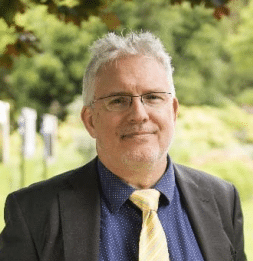
Stephan Lewandowsky
Professor of Cognitive Science
University of Bristol
Stephan Lewandowsky
Stephan Lewandowsky is Professor of Cognitive Science at the University of Bristol. His research examines people’s memory, decision making, and knowledge structures, with a particular emphasis on how people update their memories if information they believe turn out to be false. This has led him to examine the persistence of misinformation and spread of “fake news” in society, including conspiracy theories. He has become particularly interested in the variables that determine whether or not people accept scientific evidence, for example surrounding vaccinations or climate science.
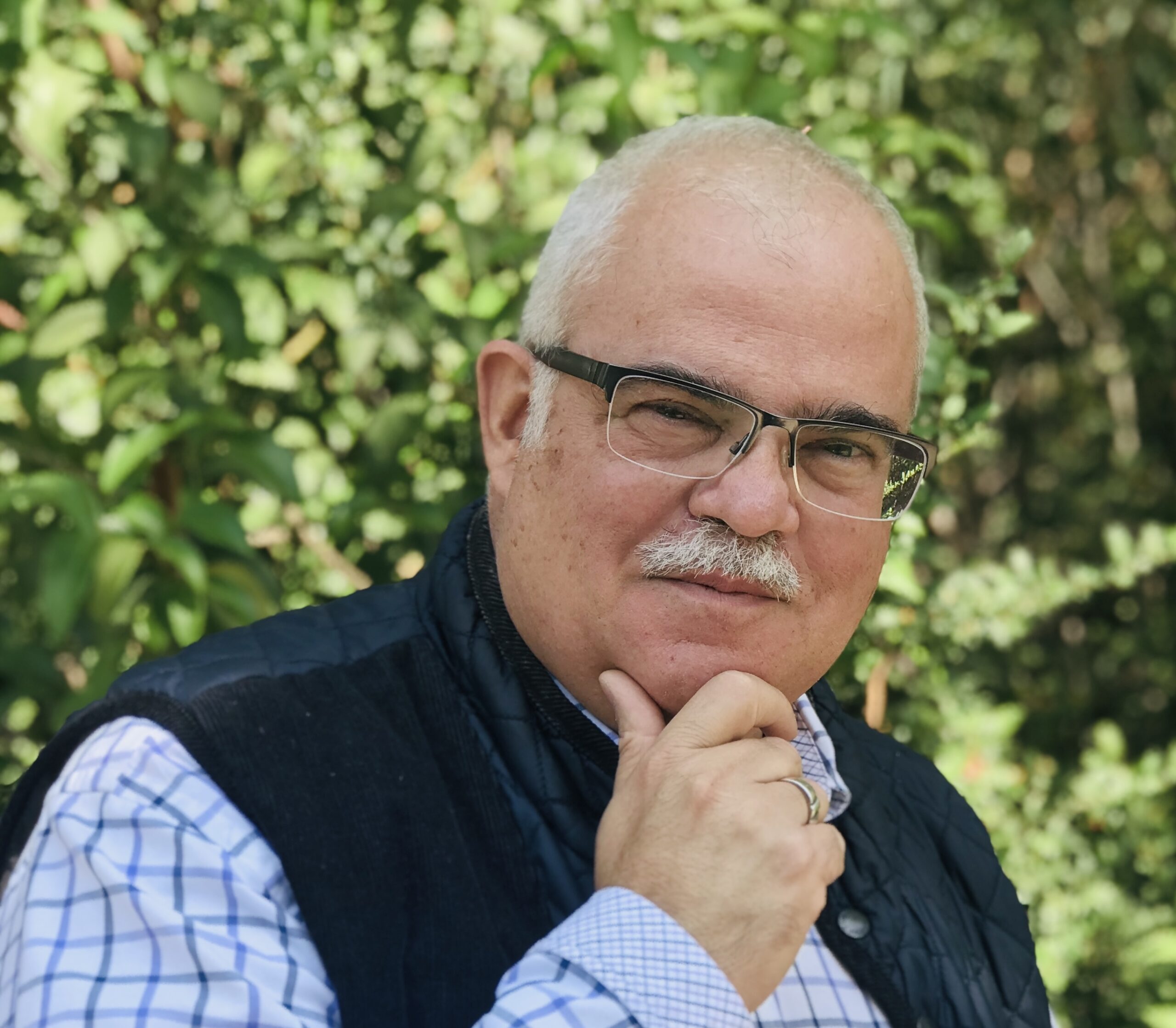
Stathis Psillos
Professor of Philosophy of Science and Metaphysics
National and Kapodistrian University of Athens
Stathis Psillos
Stathis Psillos is Professor of Philosophy of Science and Metaphysics at the National and Kapodistrian University of Athens, Greece, formerly the Rotman Canada Research Chair in Philosophy of Science and since 2013 a member of the Rotman Institute of Philosophy at the University of Western Ontario. Since 2020 he is the co-ordinator of the Centre of Excellence for Philosophical Research of NKUA. In 2015 he was elected member of the Academy of Europe and in 2007 a member of the International Academy of Philosophy of Science. He is the author/editor of ten books and of more than 170 papers and reviews in learned journals and edited collections, mainly on scientific realism, metaphysics of science and the history of philosophy of science. He is founding member (2006) and the first elected President (2007-2009) of the European Philosophy of Science Association (EPSA). He is currently director of the Western Ontario Series in Philosophy of Science and former editor of Metascience (2009-2014). In 2020 he was elected member of the Steering Committee of the European Society of Analytic Philosophy (ESAP). His book Causation and Explanation was awarded the prize of the Presidents of the British Society for the Philosophy of Science for the best textbook in the Philosophy of Science in 2004. He has given over 210 talks in seminars, workshops and conferences (mostly invited) around the world.
Work Package Leaders
WORK PACKAGE 1
Project coordination
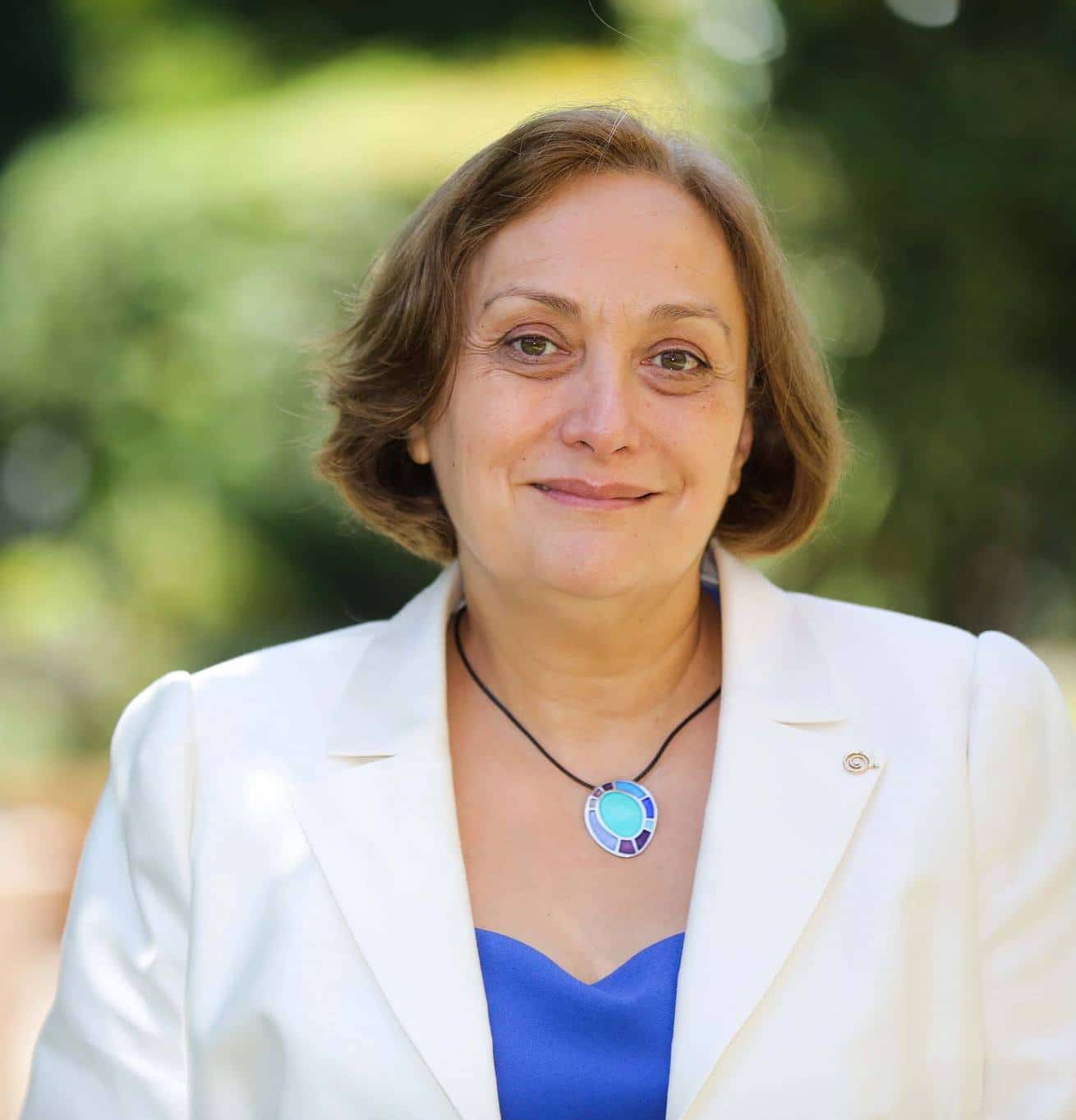
Maria Baghramian
Project Leader and Coordinator
University College Dublin
Maria Baghramian
Prof Maria Baghramian, MRIA (UCD) is Professor of American Philosophy in the School of Philosophy at University College Dublin and the co-director of the Post Graduate Programme in Cognitive Science at UCD, which she co-founded in 2000. She has also held visiting posts in Harvard, MIT, University of Yerevan, Institut Jean Nicod, École normale supérieure, Paris and various universities in China. Baghramian is a member of the Royal Irish Academy and was a member of the Council (2015-2019). Other research awards include a Fulbright senior scholarship in 2013. She, with Prof Luke Drury, is the Principal Investigator ‘When Experts Disagree’ (WEXD), an interdisciplinary research project funded by the Irish Research Council. She is also an active participant of the working groups dealing with science and policy with ALLEA and SAPEA. Baghramian was the founder and chairperson of the Society for Women in Philosophy, Ireland (SWIP–I) and is a member of both the Programme Committee and the Gender Committee of the International Federation of Philosophical Societies (FISP). She has authored and edited 9 books, most recently From Trust to Trustworthiness (Routledge, 2018) and Relativism: New Problems of Philosophy (Routledge, 2019) with Analisa Coliva.
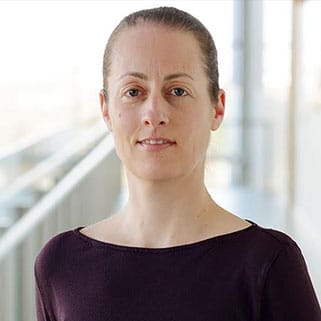
Jenny Knell
Project Manager
University College Dublin
Jenny Knell
Dr Jenny Knell is Project Manager of PERITIA. Her professional background spans higher education institutions in the US, UK and Ireland as well as the consultancy and financial services sectors. Jenny currently works as Research Manager in the UCD School of Philosophy and previously held research support roles in the UCD EU Research Office and the UCD Institute for Discovery, an interdisciplinary incubator tasked with connecting researchers around emerging research themes.
WORK PACKAGE 2
WORK PACKAGE 3
Interaction and public engagement
Work Package 2 aimed to assure high quality, coherent and effective communication of the project’s ongoing work and outputs.

Daniel Kaiser
ALLEA
Daniel Kaiser
Daniel Kaiser is Scientific Policy Officer in ALLEA and will be responsible for coordinating ALLEA’s contributions to the project. Daniel has many years’ experience coordinating expert groups and research activities in his current work at ALLEA, as well as his previous post as research associate in social sciences at the University of Frankfurt. Through his experience in coordinating the ALLEA Working Group “Truth, Trust and Expertise” he has not only gained experience in organising high level conferences, meetings and subsequent publications, but has also been strongly thematically involved in the topic for the last 18 months. Moreover, he can draw on his experience in quantitative as well as qualitative methods in empirical research as a social scientist.
Trust and advice mechanisms
Work Package 3 investigated and compared the existing systems through which experts assume an advisory role in policy making decisions in four European countries.
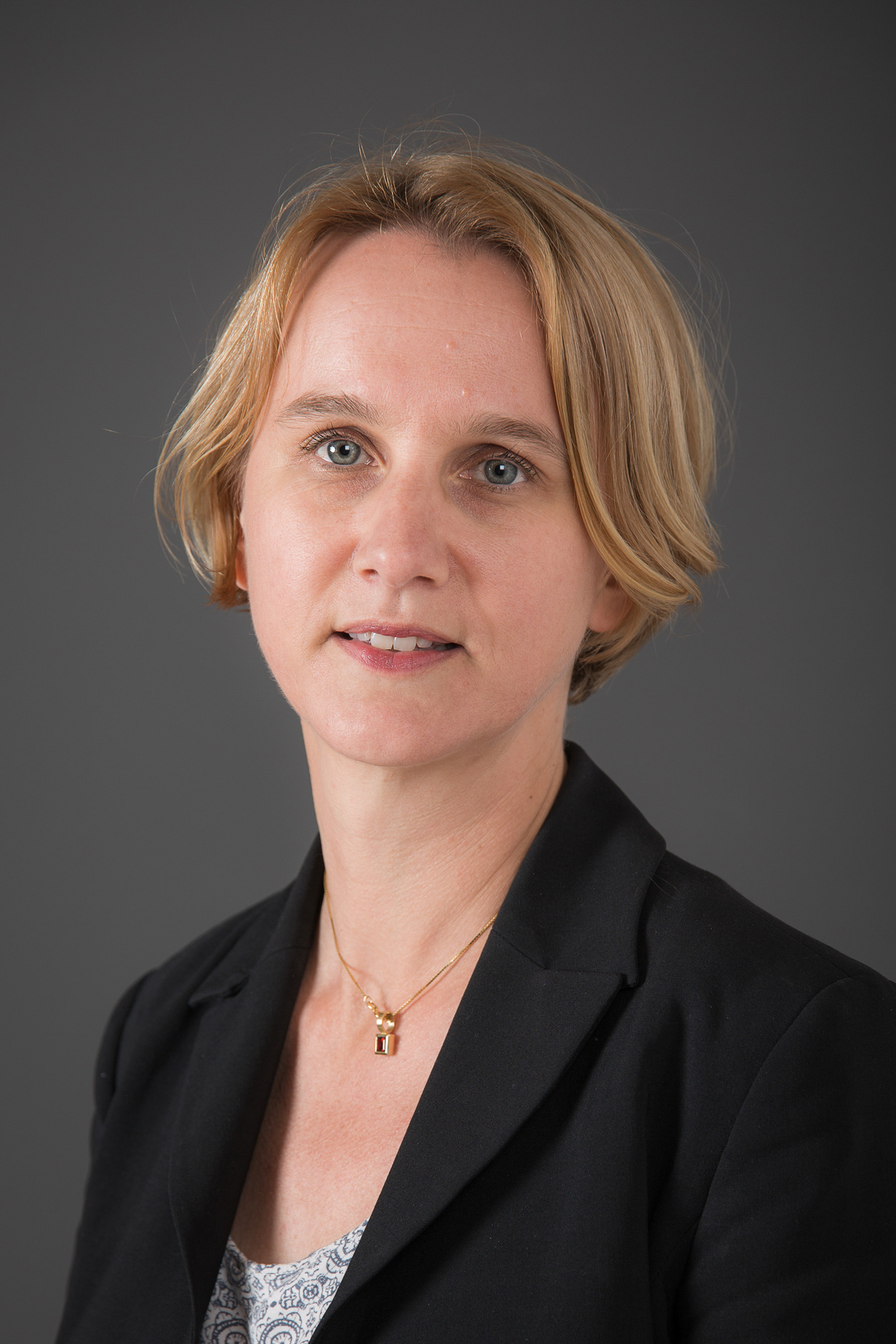
Cathrine Holst
University of Oslo
Cathrine Holst
Prof Cathrine Holst is Professor at the Department of Sociology and Human Geography, and Research Professor at ARENA Centre for European Studies, University of Oslo. Among her research interests are democracy research and theory, public policy, the role of expertise in policymaking, governance in Europe’s Nordic countries. Holst has a dr. polit.-degree from University of Bergen (2005). From 2005 to 2007 she was Associate Professor in philosophy of the social sciences, University of Bergen. She has been guest researcher at QoG (Quality of Government), University of Gothenburg (2014), Robert Schuman Centre, European University Institute, Firenze (2012), Hans Jonas-Zentrum, Freie Universität, Berlin (2004), and New School for Social Research, New York (2001). Holst has directed and participated in several research projects. She was member of the Norwegian Gender+ Equality Commission (2010-2012). She is an experienced journal editor and has had columns in several Norwegian newspapers. Holst is currently Head of Board for the Science Studies Colloquium Series at the University of Oslo.
WORK PACKAGE 4
WORK PACKAGE 5
Trust in a changing media landscape
Work Package 4 focused on the role of digital media in establishing, enhancing or diminishing the levels of trust in experts and the role it has with policy decisions.

José van Dijck
University of Utrecht
José van Dijck
Prof José van Dijck is a Distinguished Professor at the University of Utrecht and a prolific author on the topic of digital media and its impact. Her work covers a wide range of topics in media theory, media technologies, social media, and digital culture. She also plays a key role in academic and social debates in the Netherlands and Europe. From 2001 to 2016 she was Professor of Comparative Media Studies at the University of Amsterdam where she also served as Chair of the Department of Media Studies from 2002 to 2006, and was the Dean of the Faculty of Humanities between 2008 and 2012. Since 2010 Van Dijck has been a member of the Royal Netherlands Academy of Arts and Sciences (KNAW) and served as its President from 2015 to 2018. In 2016 the Dutch magazine Opzij named Van Dijck the most influential Dutch Woman of the Year.
Social indicators of trust and trustworthyness
Work Package 5 investigated the role of social indicators of the trustworthiness of experts.

Gloria Origgi
Institut Jean Nicod
Gloria Origgi
WORK PACKAGE 6
WORK PACKAGE 7
Psychology of trust
Work Package 6 focused on the psychological mechanisms of trust and trustworthiness, particularly in the context of trust in scientific expertise.
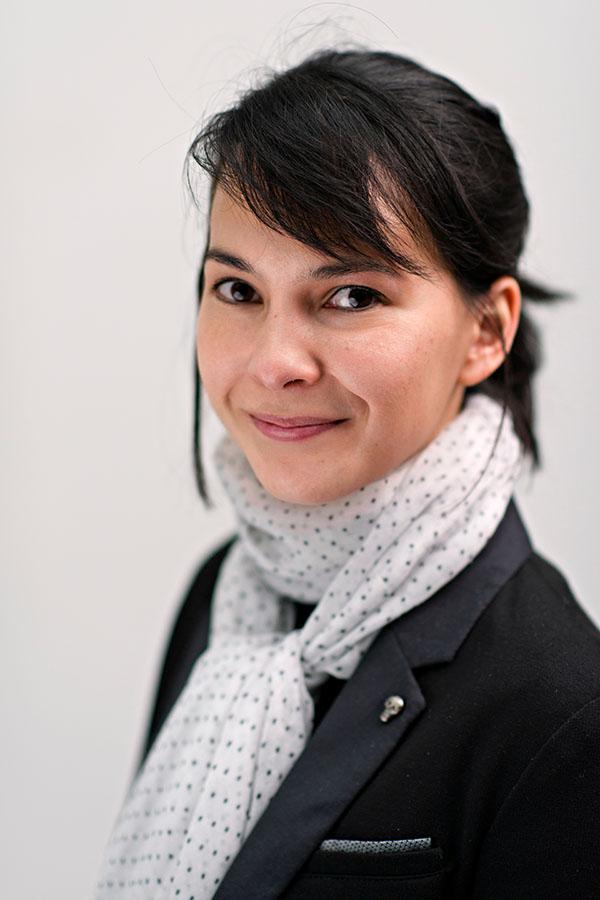
Tiffany Morisseau
Strane Innovation
Tiffany Morisseau
Dr Tiffany Morisseau is Human Factor Research Manager at Strane Innovation. She has a Master’s degree in Management from AUDENCIA Business School (Nantes, France) and a PhD in Cognitive Psychology from the University of Lyon, which she obtained in 2014. She has a business experience in Human Resources, and an academic expertise in social cognition, developmental psychology, experimental pragmatics and eye-tracking methodology. During her PhD, she explored the role of intentionality and social affiliation in the processing of communicative inferences. Her post-doctoral project, funded by the Fyssen Foundation in collaboration with Dan Sperber within the ERC Synergy project SOMICS (Constructing Social Minds), aimed at making use of tools from experimental pragmatics to study the mechanisms of transmission of practices and beliefs involved in social interactions. She then joined the MINds and Traditions (MINT) team of Olivier Morin at the Max Planck Institute for the Science of Human History in Jena (Germany), to participate in the development of The Color Game, a smartphone application designed to study the dynamics of language evolution. Since January 2019, Tiffany leads Strane’s projects in Human Sciences, with a specific focus on the question of acceptance. These projects include the acceptance of robots in industrial contexts, critical thinking, collective intelligence and research on careers with positive social impact. She is also the webmaster of the International Cognition and Culture Institute , an online discussion forum devoted to cognitive anthropology. Tiffany is fluent in French and English.
Ethics of trust
Work Package 7 investigated the ethical requirements of trustworthy expertise as well as the role of ethical considerations in placing trust in policies based on expert advice.

Rowland Stout
University College Dublin
Rowland Stout
Prof Rowland Stout, MRIA is Professor in the UCD School of Philosophy and Director of the UCD Centre for Ethics in Public Life, whose current focus is on Vulnerability, Empathy, Trust and Emerging Technologies. He completed his postgraduate studies at Oxford and then worked at Oxford University and Manchester University before joining University College Dublin. He has published significant work in the areas of the philosophy of mind and action and also metaphysics and epistemology, including three monographs, the first of which was published in 1996 by Oxford University Press. His papers, which have been published in top peer-reviewed journals in the world, deal with moral psychology, philosophy of action, and emotion, and his current work in the philosophy of emotion is leading to a new book on the relation between emotion and reason as well as articles on empathy and on trust. He is also the Editor in Chief of the International Journal of Philosophical Studies. He was elected a member of the Royal Irish Academy in 2019.
WORK PACKAGE 8
WORK PACKAGE 9
Data collection and analysis
WP8 had the core objective of collecting data necessary to underpinning the overall findings of this project. This particular work package engaged in two complementary strands of activity: 1) Understanding trends in existing measures of trust; and 2) Generating new European data on institutional trust.
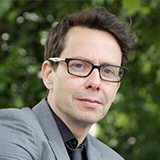
Bobby Duffy
King’s College London
Bobby Duffy
Prof Bobby Duffy, Director of The Policy Institute at King’s College London, leads the work package on ensuring the integrity of survey design and analytical approach. Duffy has spent much of his career studying levels and drivers of individual and institutional trust, including as Managing Director of the Ipsos MORI Social Research Institute and Global Director of the Ipsos Social Research Institute., This has included a major re-analysis of existing data on trust while seconded to the Prime Minister’s Strategy Unit, and a report on trust in government information, using experimental framing approaches, and which fed into the decision to give independence to the Office for National Statistics. He has also recently published a book on the Perils of Perception: Why We’re Wrong About Nearly Everything, which explores the causes of our misperceptions of social realities, across up to 40 countries globally. Duffy has extensive experience of conducting surveys and analytics/modelling, amassed across twenty-four years of working in and running research teams at Ipsos MORI. This includes overseeing major international studies on behalf of organisations including Eurofound, OSCE and Pew Research Center. He oversaw qualitative research for Trust in Media and Populism, Pew Research Center in 2018.The final report In Western Europe, Public Attitudes Towards News Media More Divided by Populist Views than Left-Right Ideology was published in 2018.
Experimental measures trust/distrust
Work Packages 9 and 10 used lab based behavioural studies to investigate the determinants of judgements of trust and trustworthiness by members of the public and to test the findings of phase 1. Work Package 9 investigated methodological challenges in studying trusting behaviour and the social factors underlying them.

Liam Delaney
University College Dublin
Liam Delaney
Prof Liam Delaney (UCD) is Professor of Economics at NUID UCD and Visiting Professor of Economics at Stirling University. A former Fulbright and Marie Sklodowska Curie Fellow, he was Deputy Director of the UCD Geary Institute from 2008 to 2011, and Deputy Dean of Stirling Management School from 2011 to 2016. He has worked at the intersection of economics and psychology for his career and has published widely in both economics and psychology journals, including Economic Journal, Journal of European Economics Association, Health Psychology, Psychological Science, and Journal of Applied Psychology. He is particularly interested in the measurement foundations of behavioural welfare economics and has built several interdisciplinary projects examining how to measure real-world economic preferences. He is currently developing a major new centre for behavioural science and public policy at UCD Geary Institute.
WORK PACKAGE 10
WORK PACKAGE 11
Behavioural tools for building trust
WP 9 and 10 used lab-based behavioural studies to investigate the determinants of judgements of trust and trustworthiness by members of the public and to test the findings of phase 1. WP10 investigated the emotional and cognitive components of trusting behaviour.
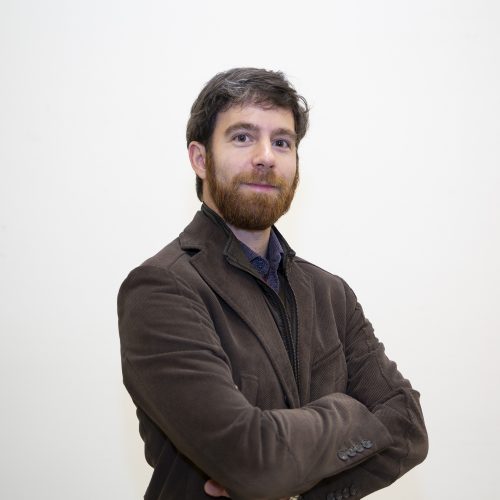
Carlo Martini
Vita-Salute San Raffaele University
Carlo Martini
Dr Carlo Martini is Assistant Professor of Philosophy in the Faculty of Philosophy at Vita-Salute San Raffaele University (UNISR). His primary research interests are in philosophy of the social sciences and social epistemology. He works on the role of expertise in knowledge transfer from science to policy, on expert disagreement and on public trust in scientific experts. He is a visiting fellow at the Centre for Philosophy of the Social Science, University of Helsinki. Before taking up his post at UNISR (Milan) he was a senior researcher at the Academy of Finland Centre of Excellence in the Philosophy of the Social Sciences, after completing his Ph.D. at the Tilburg Centre for Logic and Philosophy of Science in 2011.
Citizens’ fora
WP 11 ran Citizens’ Fora to create opportunities for encounters between representative groups from the general public and experts, policy makers and journalists specialising in the area of climate change
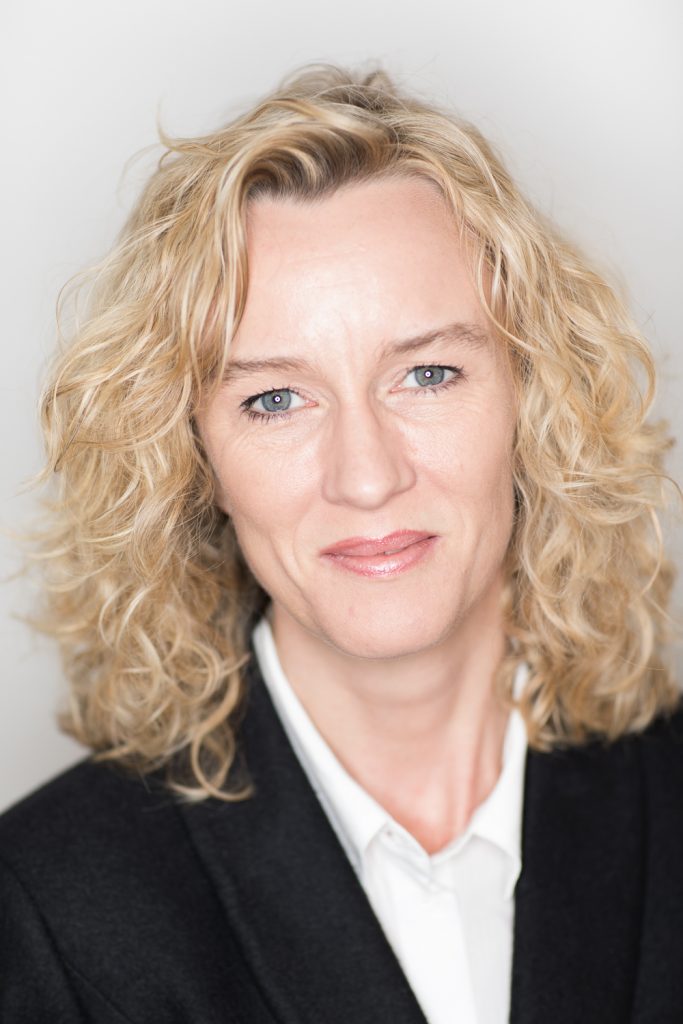
Tracey Brown
Sense about Science (SaS)
Tracey Brown
Tracey Brown OBE has been the director of Sense about Science (SaS) since 2002. Under her leadership, the charity has turned the case for sound science and evidence into popular campaigns to urge scientific thinking among the public and the people who answer to them. It has launched important initiatives to expand and protect honest discussions of evidence, including AllTrials, a global campaign for the reporting of all clinical trial outcomes; and the Ask for Evidence campaign, which engages the public in requesting evidence for claims. It has challenged opinions and changed the behaviour of governments, media and corporations in the use of scientific evidence. Tracey leads SaS’ work on the transparency of evidence used by governments in policy, to ensure that the public has access to the same evidence and reasoning as decision-makers. This has included drafting the Principles for the Treatment of Independent Scientific Advice, which were adopted into the UK Ministerial Code in 2010, the creation of a public interest defence to libel in the Defamation Act 2013 and the Evidence Transparency Framework, used to audit UK government in 2016 and 2017 and adopted by government audit agencies around the world. In 2010, the Times named Tracey as one of the ten most influential figures in science policy in Britain and in 2014 she was recognised by the Science Council for her work on evidence-based policy making. In June 2017 Tracey was made an OBE, for services to science. A regular public speaker and discussion chair, Tracey writes frequently about scientific evidence, policy and the public in national media. She has been a vocal critic of the idea of a ‘post-truth’ society and champion of the public interest in trustworthy evidence. She has written papers, periodicals and books on accountability for evidence, including Playing by the Rules (2013, 2016) co-authored with the late science journalist Michael Hanlon. She took up the same theme of holding authorities to account for evidence in her 2014 TEDx talk “The Power of Asking for Evidence”. Tracey has written and edited popular public guides to scientific research and led research on reliability of evidence, including the 2009 Peer Review Survey, the largest global survey of authors, reviewers and editors. Tracey will provide strategic advice and public engagement insights.
Team members

Donya Alinejad
Utrecht University
Donya Alinejad
Donya Alinejad is interested in digital platforms and social media, particularly their everyday usage in contexts of plurality and difference. Her work has focused on how platforms mediate emotional facets of experience, including feelings of intimacy, trust, and belonging. Her research has primarily explored these issues in relation to migration, diaspora, transnationalism, and multicultural diversity. Her PhD is in social and cultural anthropology (Vrije Universiteit Amsterdam) and drew on her fieldwork investigating the role of web media in cultural identity formation among young Iranian Americans in Los Angeles. She has previously worked as a postdoc researcher on the ERC Consolidator project, Digital Crossings in Europe: Gender, Diaspora, and Belonging.
Work Package 4 focuses on the role of digital media in establishing, enhancing or diminishing the levels of trust in experts and the role it has with policy decisions.
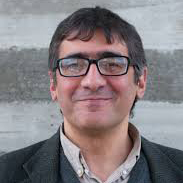
Alen Amirkhanian
American University of Armenia’s (AUA) Acopian Center for the Environment
Alen Amirkhanian
Alen Amirkhanian is the Director of the American University of Armenia’s (AUA) Acopian Center for the Environment since 2013 and the Interim Director of the AUAF Center for Responsible Mining since 2014. He teaches graduate and undergraduate environmental courses at AUAF. Prior to AUA, he was Senior Vice President of Research at Michael Porter’s Initiative for a Competitive Inner City. He has consulted with the World Bank, UNDP, and the Brookings Institution on energy efficiency as well as economic and urban-growth issues. His current academic interests include urban environmental sustainability, “greening” the built environment, and circular economy esp. as it relates to “greening” cities. He holds a Masters in City Planning (1997) from the Massachusetts Institute of Technology’s Department of Urban Studies and Planning.
Work Package 7 will investigate the ethical requirements of trustworthy expertise as well as the role of ethical considerations in placing trust in policies based on expert advice.
Work Package 11 runs Citizens’ Fora to create opportunities for encounters between representative groups from the general public and experts, policymakers and journalists specialising in the area of climate change.
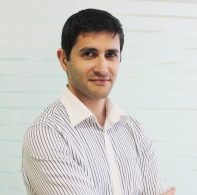
Arshak Balayan
AUAF
Arshak Balayan
Dr Arshak Balayan (AUA) is Adjunct Lecturer at the AUAF who specialises in ethics and epistemology. He received his doctorate from Yerevan State University in 2009. Before joining AUA, he taught at Yerevan State University. He also was a visiting scholar at Harvard University for three consecutive spring semesters. Dr Balayan is author to a manual of philosophy for university students in Armenia. He is also author to on-line lectures series on introduction to ethics.
Work Package 7 will investigate the ethical requirements of trustworthy expertise as well as the role of ethical considerations in placing trust in policies based on expert advice.
Work Package 11 runs Citizens’ Fora to create opportunities for encounters between representative groups from the general public and experts, policymakers and journalists specialising in the area of climate change.

Rebecca Benson
King’s College London Policy Institute
Rebecca Benson
Dr Rebecca Benson is Research Fellow at King’s College London. She will lead the secondary data analysis and produce a series of analyses and reports based on the new survey data generated in WP8. Dr Benson is a quantitative social scientist who has a range of substantive focus areas. She has worked with survey data from several large, nationally representative samples including the National Longitudinal Survey of Youth and the English Longitudinal Study of Ageing, as well as bespoke smaller surveys such as tenants of a particular housing block.
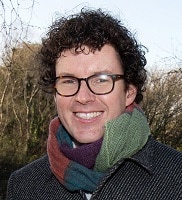
Shane Bergin
University College Dublin
Shane Bergin
Work Package 2 aims to assure high quality, coherent and effective communication of the project’s ongoing work and outputs.
Ty Branch
Institut Jean Nicod
Ty Branch
Dr. Ty Branch is a Canadian philosopher of science who writes on values in science and science communication. She argues for the need to contextualize information using non-epistemic values to facilitate public understanding and engagement with science. In her upcoming role as a postdoc, she will investigate the intersection of values and emotion as social indicators of trust. In addition to her philosophy background, her understanding of public engagement with science is informed by her experience leading national citizen science deliberations (World Wide Views, Climate and Energy) and through interdisciplinary embedded research partnerships (Zenith, INRIA & Mitacs).
Work Package 5 investigates the role of social indicators of experts’ trustworthiness.
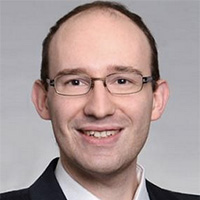
Alexandre Bredimas
Strane Innovation
Alexandre Bredimas
Alexandre Bredimas is Strane Innovation’s Manager, specialised in the sectors of energy and transport. He has experience in the management European projects (FP7 EUROPAIRS, FP7 FAIRFUELS) involving 12 to 25 partners with a budget of 2 to 5M€, and a WPL in many more. He has been involved in the initiation of more than 50 European project proposals. Alexandre has founded startup factory Strane in 2013 which has grown by 2,000% since its creation. Strane has successfully created its 2 first startups in October 2017 (Esensial and Plant Angels oriented on industrial innovations for sensors and big data) and manages the European subsidiary of US Startup USNC which has raised several 10s of M$. Alexandre is a lecturer for final-year Master students at French engineering school Ecole Centrale de Lyon on energy policy, smart cities, external costs, cost-benefit analyses and system dynamics. Before creating Strane, Alexandre has been working at German energy utility EON in Strategy and EU Policy, in French vendor Areva as Cost estimator responsible for engineering, in French consultancy LGI on EU project management. He has participated in the Management Committee of EU think tank Confrontations Europe, focusing on energy policy as well as in the international network of cities on water NetwercH20.
Work Package 2 aims to assure high quality, coherent and effective communication of the project’s ongoing work and outputs.
Work Package 6 focuses on the psychological mechanisms of trust and trustworthiness, particularly in the context of trust in scientific expertise.

Finbarr Brereton
UCD School of Architecture, Planning and Environmental Policy
Finbarr Brereton
Dr Finbarr Brereton (UCD) is Assistant Professor at the UCD School of Architecture, Planning and Environmental Policy. He is an expert in survey design and implementation, having been involved in numerous surveys in Ireland and internationally. He was the National Coordinator of the European Social Survey in Rounds 6 and 7 in Ireland and sits on the National Steering Committee of ESS Round 9. He was unanimously elected by the National Coordinators of the ESS to represent the NCs on the ESS ERIC meetings for ESS7. Finbarr has secured significant research funding to date in excess of €2 million from national and international funding agencies and has extensively published using quantitative data. He was the Irish Principal Investigator on the European Science Foundation funded project HAPPINESS (HAPpiness, Political Institutions, Natural Environment and Space) which linked ESS data to contextual environmental data using Geographical Information Systems.
Work Package 11 runs Citizens' Fora to create opportunities for encounters between representative groups from the general public and experts, policymakers and journalists specialising in the area of climate change.
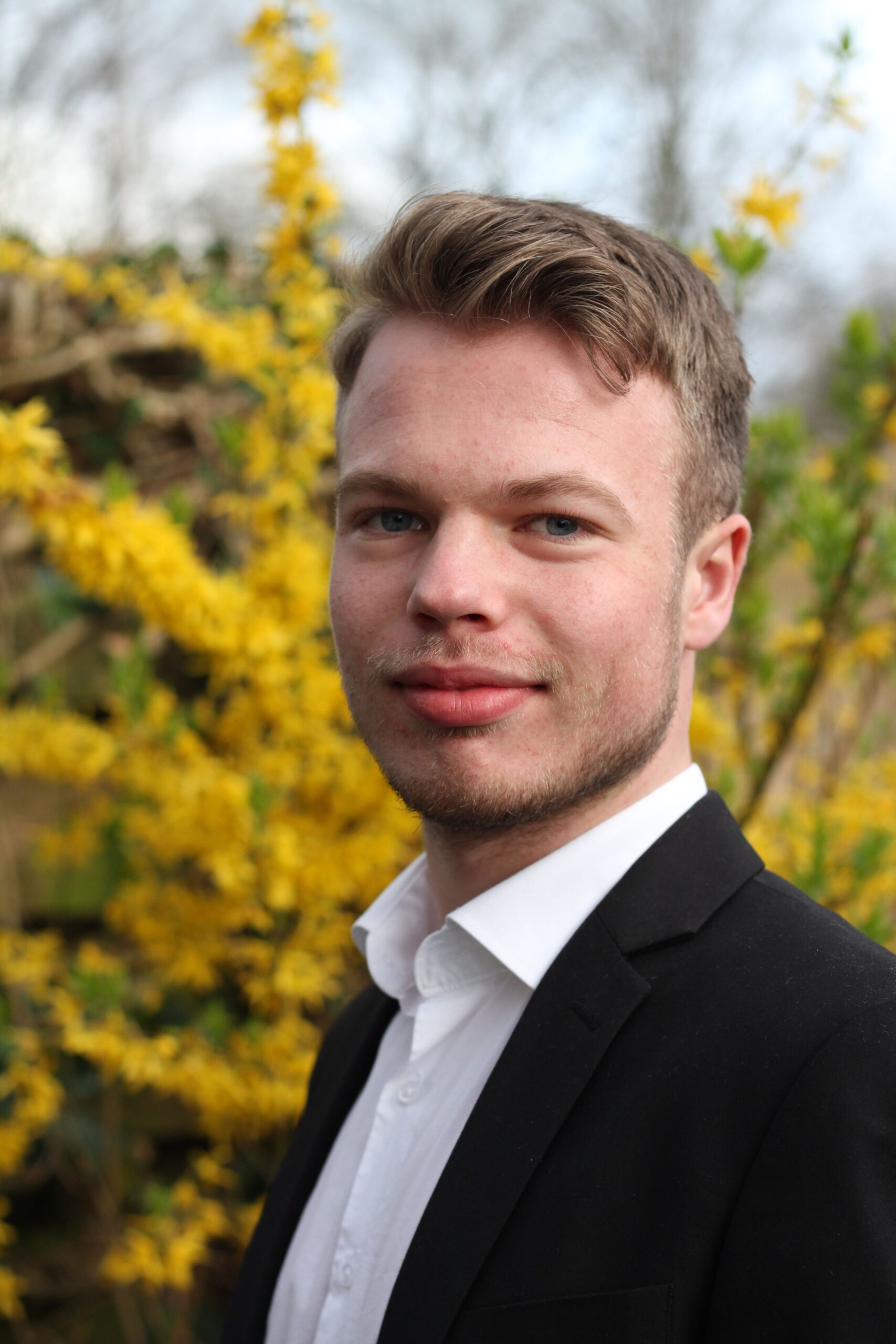
Lucas Dijker
University College Dublin
Lucas Dijker
Lucas Dijker is a PhD student at University College Dublin, working under the supervision of Prof Maria Baghramian. He graduated cum laude from a joint MA degree in European Studies at the University of Groningen (the Netherlands) and the University of Udine (Italy). Among his research interests are the role of expertise in political decision-making, the philosophy of public policy, and democratic theory. His research focuses on how the appeal to expertise structures contemporary Western politics and our experience of democracy. In particular, the conceptual and real-world interaction of technocracy and populism will be examined.
Work Package 7 will investigate the ethical requirements of trustworthy expertise as well as the role of ethical considerations in placing trust in policies based on expert advice.
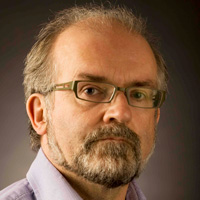
Luke Drury
Dublin Institute for Advanced Studies
Luke Drury
Prof Luke Drury, MRIA (DIAS and UCD) is an astrophysicist and Emeritus Professor in the Dublin Institute for Advanced Studies. He has been International Relations Secretary and President of the Royal Irish Academy and is currently a board member of ALLEA as well as a member of the Euro-ISC management group. He has a particular interest in issues of policy for science and the civic responsibilities of scientists and scholars. He was co-PI along with Prof Maria Baghramian of the interdisciplinary project on Expert Disagreement WEXD and a member of the joint ALLEA and British Academy working group on Trust, Truth and Expertise. He brings the perspective of a natural scientist interested in issues of policy to the project.
Work Package 7 will investigate the ethical requirements of trustworthy expertise as well as the role of ethical considerations in placing trust in policies based on expert advice.

Emma Fletcher-Barnes
University College Dublin
Emma Fletcher-Barnes
Dr Emma Fletcher-Barnes is a Researcher at the School of Architecture, Planning and Environmental Policy in UCD, Dublin. Emma achieved a Masters Degree in International Relations from the School of History, Anthropology, Philosophy and Politics (HAPP) at Queen’s University in Belfast in 2012, during which her dissertation focused on policing post-conflict societies. Emma returned to Queen’s for her PhD at HAPP from which she graduated in 2020. Emma’s research interests are focused on the social science of conservation; particularly intersections between politics, security, and species extinction; the militarization of conservation, the poaching and trafficking of wildlife, and wider political and security issues emergent from global environmental crime. She is also interested in the consideration of environmental issues through a feminist lens and in theories and approaches within critical animal studies.
Work Package 11 runs Citizens' Fora to create opportunities for encounters between representative groups from the general public and experts, policymakers and journalists specialising in the area of climate change.
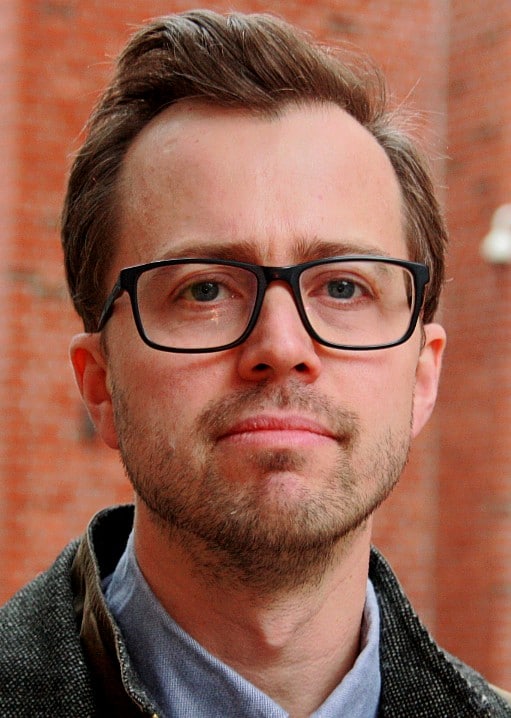
Torbjørn Gundersen
University of Oslo
Torbjørn Gundersen
Torbjørn Gundersen is postdoctoral fellow at the Department of Sociology and Human Geography, University of Oslo. He will contribute to Work Package 3 about trust and advice mechanisms. Gundersen has a PhD from Oslo Metropolitan University with a philosophy of science monograph about the proper role of scientific expertise in public policymaking, focusing on the case of climate science. Gundersen is also interested in the ethics of applied artificial intelligence and is engaged in a research project at Oslo Metropolitan University about machine learning, professional accountability, and human values.
Work Package 3 investigates and compare the existing systems through which experts assume an advisory role in policy making decisions in four European countries

Rhéa Haddad
Rhéa Haddad
Rhéa Haddad is a PhD candidate in social and cognitive psychology working with Strane Innovation and the Laboratoire de Psychologie Sociale et Cognitive (Université de Clermont Auvergne) on cooperation and trust in crowds in situations of collective danger and resource scarcity. She obtained her BA in psychology from the American University of Beirut (Lebanon) in 2019, then her masters degree in cognitive science (Cogmaster) from the Ecole Normale Supérieure (Paris, France) in 2021. Her general interests are around understanding social and environmental issues through a cognitive and behavioral lens, and in the active role of citizens in such issues.
Work Package 6 focuses on the psychological mechanisms of trust and trustworthiness, particularly in the context of trust in scientific expertise.

Kirstie Hewlett
King’s College London Policy Institute
Kirstie Hewlett
Dr Kirstie Hewlett is a Research Associate at the Policy Institute, King’s College London. She will primarily lead the design, translation and cognitive testing of the survey in WP8. She works across a wide range of social policy areas, with interests in inequalities, social division and equality of opportunity, and the role of values, emotion and identity in policy making and trustworthy governance. Alongside her role in the PERITIA project, she is a Co-Investigator for the ESRC-funded World Values Survey in Great Britain, which explores values polarisation in Britain and its implications for policymaking, and is a contributor to the Deaton Review of inequalities in the twenty-first century. She has published on a broad range of topics including polarisation in the UK, attitudes to inequalities and immigration, research impact and freedom of expression, and has led evaluations of cultural programmes that aim to address equality of opportunity among disadvantaged or under-represented populations.
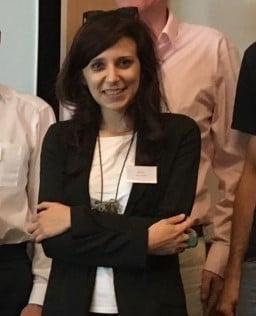
Silvia Ivani
Silvia Ivani
Dr Silvia Ivani is Teaching Fellow at University College Dublin. Her primary research interests are in philosophy of science, feminist philosophy, and social epistemology. She is interested in investigating the interplay between epistemic, social, and moral factors in science. Her work has explored the role of cognitive and non-cognitive values in science. Previously, she worked as a postdoc researcher on the ERC project “The Social Epistemology of Argumentation” at Vrije Universiteit Amsterdam. She received her PhD from Tilburg University in 2020.
Work Package 7 will investigate the ethical requirements of trustworthy expertise as well as the role of ethical considerations in placing trust in policies based on expert advice.
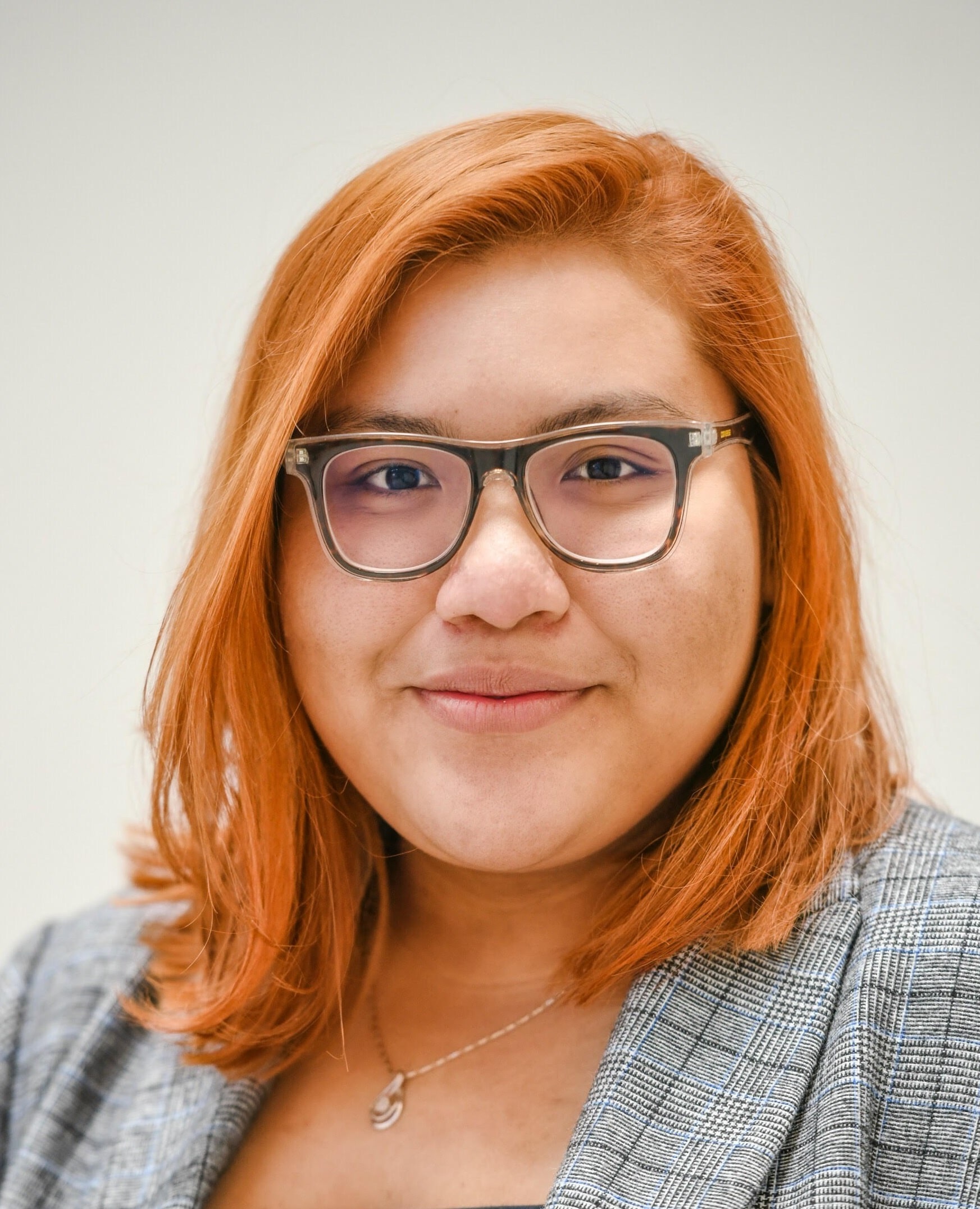
Ilaina Khairulzaman
Sense about Science
Ilaina Khairulzaman
Ilaina joined Sense about Science shortly after completing her research MSc in immunology from Trinity College Dublin. While doing her MSc, Ilaina was involved in many public engagement & science communications activities including teaching teenagers laboratory techniques, competing in FameLab and performing in Bright Club. After a year of bioinformatics research, Ilaina realised she was much more passionate about making societal impact through speaking about science, than she was doing the science. She also has experience in social entrepreneurship, working with government bodies and corporations to help them address social challenges in novel ways. Ilaina is the head of international public engagement, training and marketing and coordinates projects across the EU such as the Voice of Young Science network and Evidence Matters, mobilising researchers, community groups and policymakers to stand up for science and evidence.
Work Package 11 runs Citizens' Fora to create opportunities for encounters between representative groups from the general public and experts, policymakers and journalists specialising in the area of climate change.
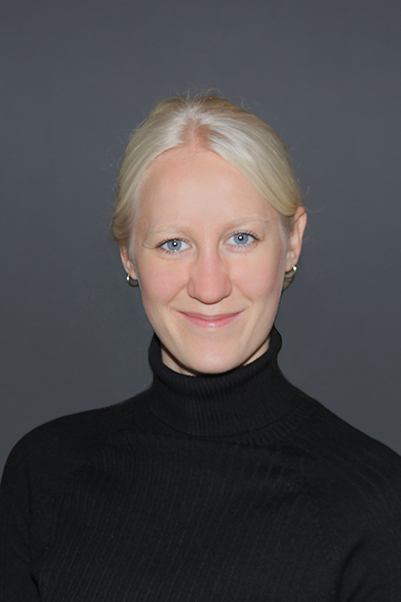
Hannah Løke Kjos
University of Oslo
Hannah Løke Kjos

Eva Krick
University of Oslo
Eva Krick
Dr Eva Krick is postdoctoral research fellow at ARENA Centre for European Studies, University of Oslo. She contributes to WP 3 on Trust and advice mechanisms. Dr Krick is a political studies scholar whose current research focuses on the role of expert advice in governance and its embedding into democratic structures. She also works on collective decision-making modes and consensus democracies, on participatory governance and citizen involvement. Her regional focus in research is on Germany, Norway and the EU. Dr Krick holds a PhD from University of Darmstadt and has been postdoctoral fellow at Humboldt University Berlin, prior to joining ARENA. She has been guest researcher at the Universities of Edinburgh, Singapore, Oslo and Århus.
Work Package 3 investigates and compare the existing systems through which experts assume an advisory role in policy making decisions in four European countries.
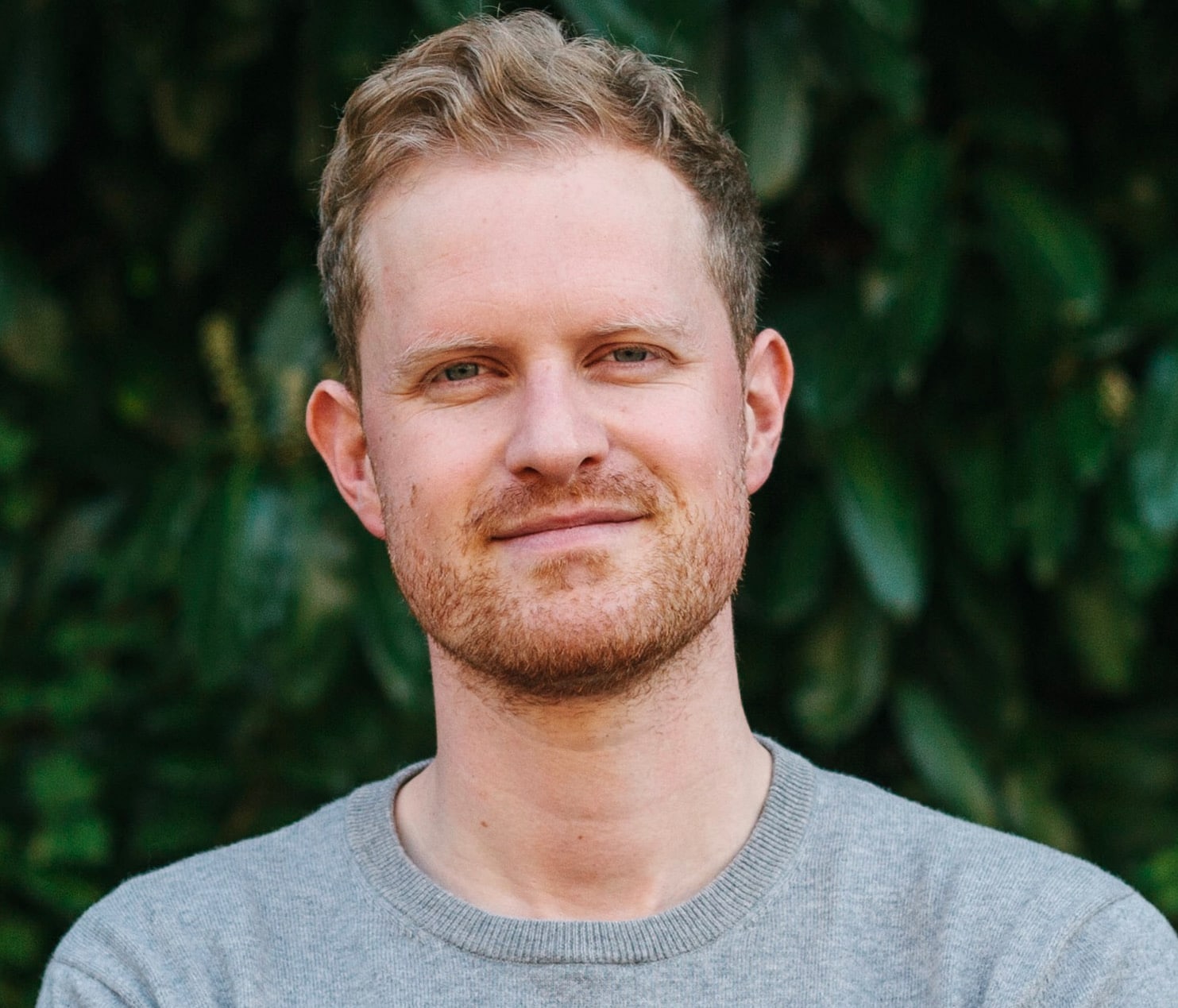
Finlay Malcolm
The Policy Institute, King’s College London
Finlay Malcolm
Dr Finlay Malcolm is a Research Associate at The Policy Institute, King’s College London. He completed a Ph.D. in philosophy at University of Manchester, and from 2017-22, was a Research Fellow in philosophy at University of Hertfordshire, where he taught ethics and political philosophy. Finlay has published numerous journal articles, and a monograph, on topics mainly in social, political and religious epistemology. His main areas of focus have been on faith and trust, democracy and voter knowledge, free speech, and extremism. Finlay will contribute to the research, analysis and outputs from WP8.

Daniella Meehan
University College Dublin
Daniella Meehan
Daniella Meehan is a research assistant at University College Dublin. She specialises in epistemology, with a particular interest in epistemic and institutional trust. Her PhD in social epistemology focused on the various ways in which the epistemic practices of individuals and societies can go wrong, drawing on vice epistemology, epistemic paternalism and trust. She is also interested in other areas of ‘non-ideal’ epistemology, such as epistemic injustice, alongside political, applied and feminist epistemology.
Work Package 7 will investigate the ethical requirements of trustworthy expertise as well as the role of ethical considerations in placing trust in policies based on expert advice.

Brian Monroe
University College Dublin
Brian Monroe
Brian Monroe focuses primarily on the methodology of experimental economics and how economic experiments can provide insight into decisions under risk, particularly when objective probabilities of events are unknown. He has focused on how differences in experimentally elicited beliefs about the health risks of smoking, and how beliefs about the behavior of second movers in trust games influences the behavior of first movers. Brian is a research fellow at the Center for the Economic Analysis of Risk at Georgia State University, and a research fellow at the Research Unit in Behavioural Economics and Neuroeconomics at the University of Cape Town. He holds a PhD in Economics from the University of Cape Town, and a Masters in Economics and Policy from Georgia State University.
Work Packages 9 and 10 use lab based behavioural studies to investigate the determinants of judgements of trust and trustworthiness by members of the public and to test the findings of phase 1. Work Package 9 investigates methodological challenges in studying trusting behaviour and the social factors underlying them.

Matteo Motterlini
Vita-Salute San Raffaele University
Matteo Motterlini
WP10 investigates the emotional and cognitive components of trusting behaviour. As in WP 9, it uses lab based behavioural studies to investigate the determinants of judgements of trust and trustworthiness by members of the public and to test the findings of phase 1.
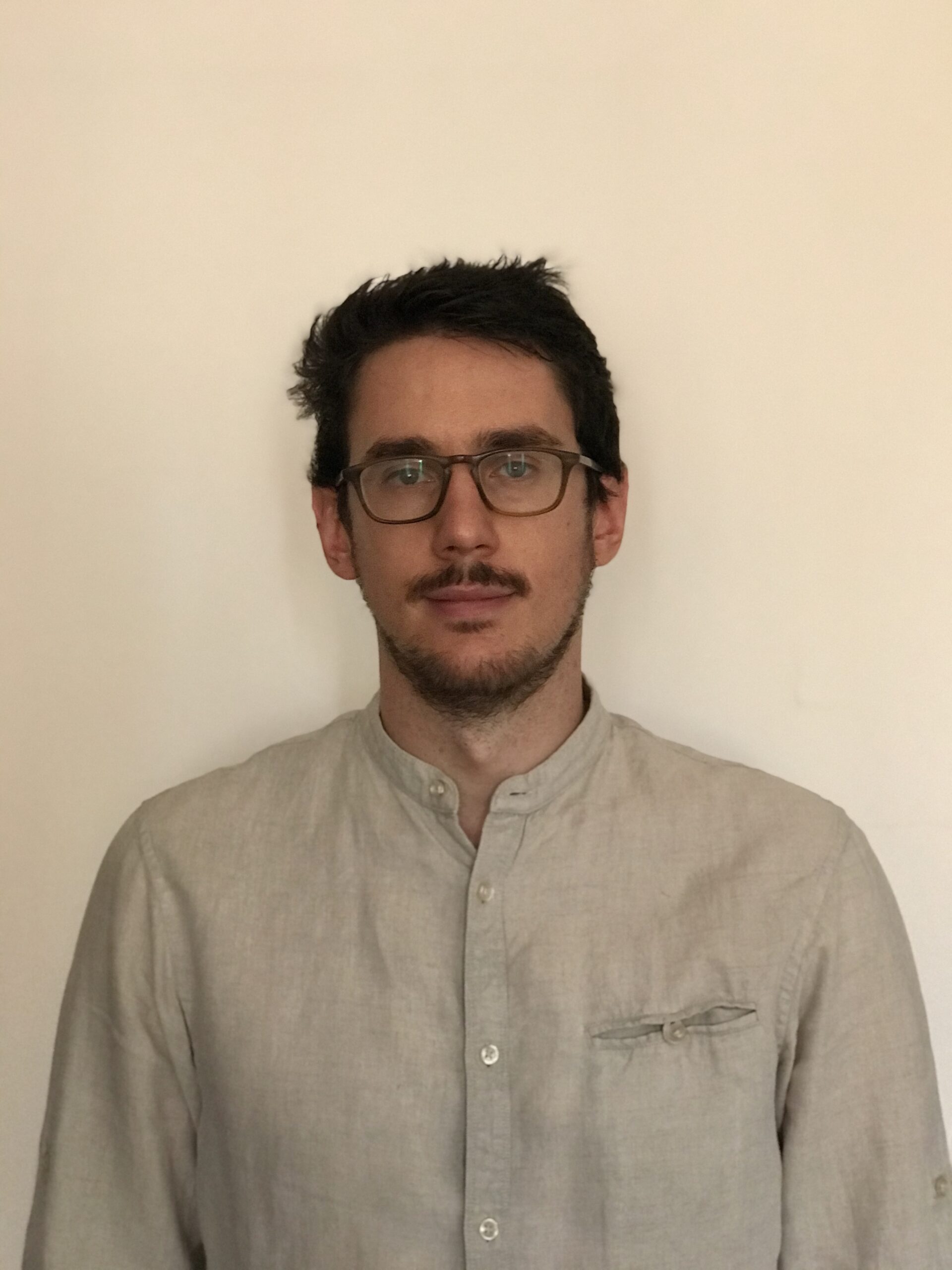
Folco Panizza
Vita-Salute San Raffaele University
Folco Panizza
Folco Panizza is a research fellow of the Research Center for Applied and Experimental Epistemology (CRESA) at the Vita-Salute San Raffaele University in Milan. Folco has worked alongside biologists, economists, computer scientists, neuroscientists, exploring with the use of computational cognitive models the different mental processes that occur when decisions are made in isolation compared to when done in a social context. Folco specialises in experiments concerning social norms and the social image of individuals, to explore how these affect our perception of the world and our daily decisions. Folco holds a Bachelor degree in Psychology from the University of Florence, a Master of Science from the Berlin School of Mind and Brain, and a PhD from the Centre for Mind/Brain Sciences at the University of Trento.
WP10 investigates the emotional and cognitive components of trusting behaviour. As in WP 9, it uses lab based behavioural studies to investigate the determinants of judgements of trust and trustworthiness by members of the public and to test the findings of phase 1.
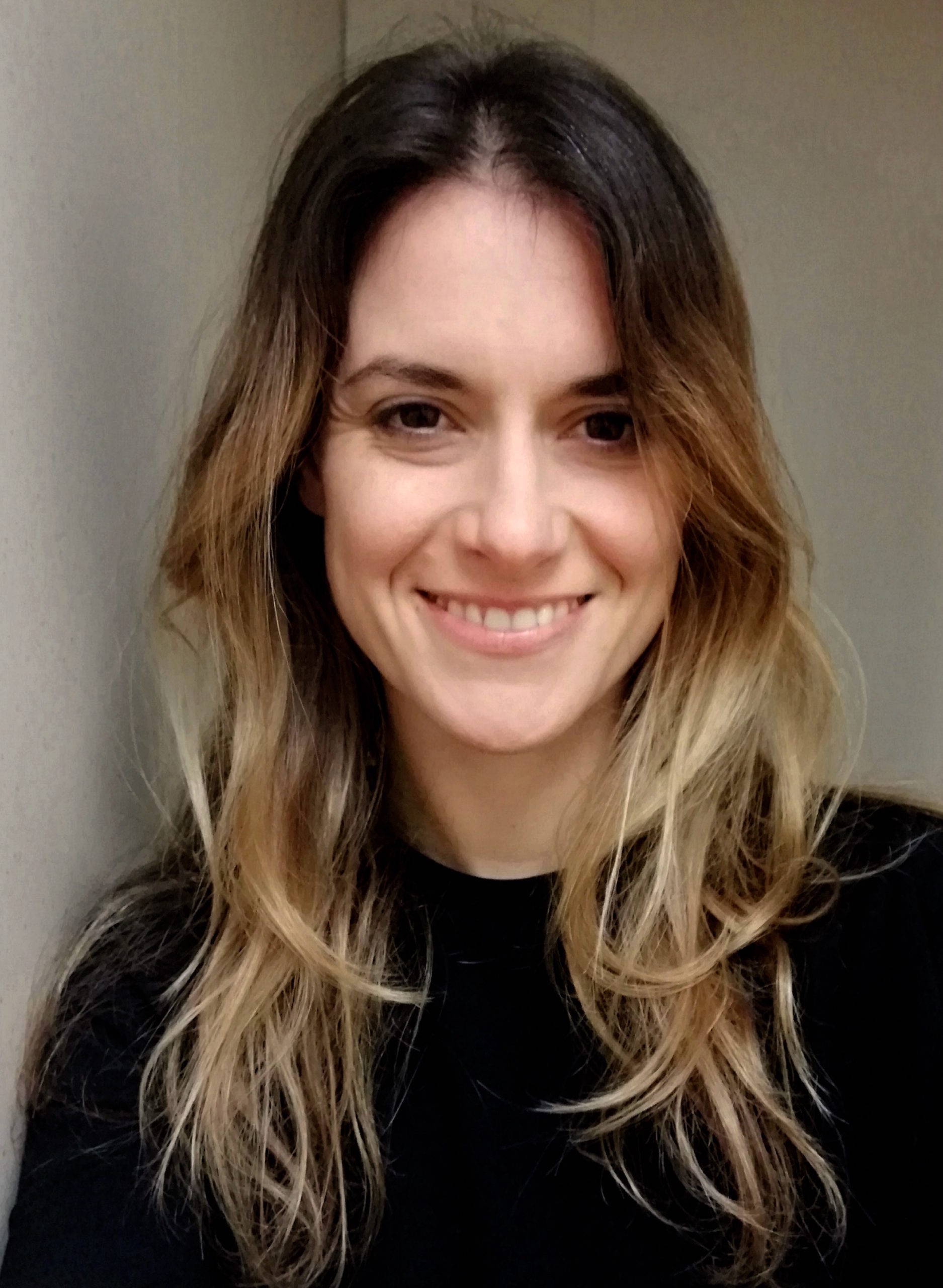
Silvia Panizza
University College Dublin
Silvia Panizza
Dr Silvia Panizza is Teaching and Research Fellow in Ethics in the School of Philosophy at University College Dublin. She was previously Lecturer in Ethics at Norwich Medical School, University of East Anglia. She has taught philosophy in Norwich, Rome and Cambridge, and literature in Genoa, and she has a background in comparative literature and languages. She works in meta-ethics and moral psychology (moral knowledge, moral perception) and applied ethics (animal and environmental ethics). Her current project is about the ways in which possibilities are created, recognised or excluded in ethical thinking. She draws on the philosophy of Iris Murdoch and Simone Weil and she is currently co-editing a volume on Murdoch’s thought for Routledge. She is keen to help share philosophy outside of academia through public engagement, by organising public lectures, debates and workshops, and non-academic publications.
Work Package 7 will investigate the ethical requirements of trustworthy expertise as well as the role of ethical considerations in placing trust in policies based on expert advice.
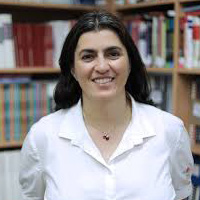
Yevgenya Paturyan
American University of Armenia
Yevgenya Paturyan
Dr Yevgenya Paturyan is Assistant Professor at the American University of Armenia. She specialises and has interest in the sphere of civil society, political culture, volunteering, democratisation of post-communist countries, research methodology and corruption. She received her PhD in Political Science from Jacobs University Bremen. Prior to joining AUAF, she worked at Eurasia Partnership foundation and at Caucasus Research Resource Centres – Armenia. She is also affiliated with the Turpanjian Center for Policy Analysis (TCPA) that was established in 1995 by the AUAF School of Political Science and International Affairs (PSIA) with the central mission of promoting independent research and policy analysis. She was the team leader of a four-year research project about Armenian civil society and has authored publications in peer-reviewed journals.
Work Package 11 runs Citizens' Fora to create opportunities for encounters between representative groups from the general public and experts, policymakers and journalists specialising in the area of climate change.

Danielle Petherbridge
UCD School of Philosophy
Danielle Petherbridge
Dr Danielle Petherbridge (UCD) is Assistant Professor in the School of Philosophy at NUID UCD and Deputy-Director of the UCD Centre for Ethics in Public Life. Previously she was an IRC Marie-Curie fellow in the Department of Philosophy at Columbia University, New York, and a Government of Ireland Postdoctoral Fellow. She is currently working on two research projects: one, a monograph on recognisability and vulnerability; two, a book project on subjectivity and intersubjectivity. Her primary research interests include theories of vulnerability and recognition; the relation between perception, attention and affect; and theories of intersubjectivity in phenomenology and social philosophy. Her current work on vulnerability seeks to examine the intersection between recognition, trust and vulnerability. This complex of issues is explored in both a forthcoming refereed journal article and monograph, as well as an edited volume. One of the primary issues examined in this research centres around the forms of vulnerability that underlie relations of trust as well as the recognitive relations upon which trust in experts depends. Petherbridge is also creator and co-founder of the Irish Young Philosopher Awards and is developing educational packages on ethics and trust for school students at both primary and secondary school level.
Work Package 7 will investigate the ethical requirements of trustworthy expertise as well as the role of ethical considerations in placing trust in policies based on expert advice.
Work Package 11 runs Citizens' Fora to create opportunities for encounters between representative groups from the general public and experts, policymakers and journalists specialising in the area of climate change.
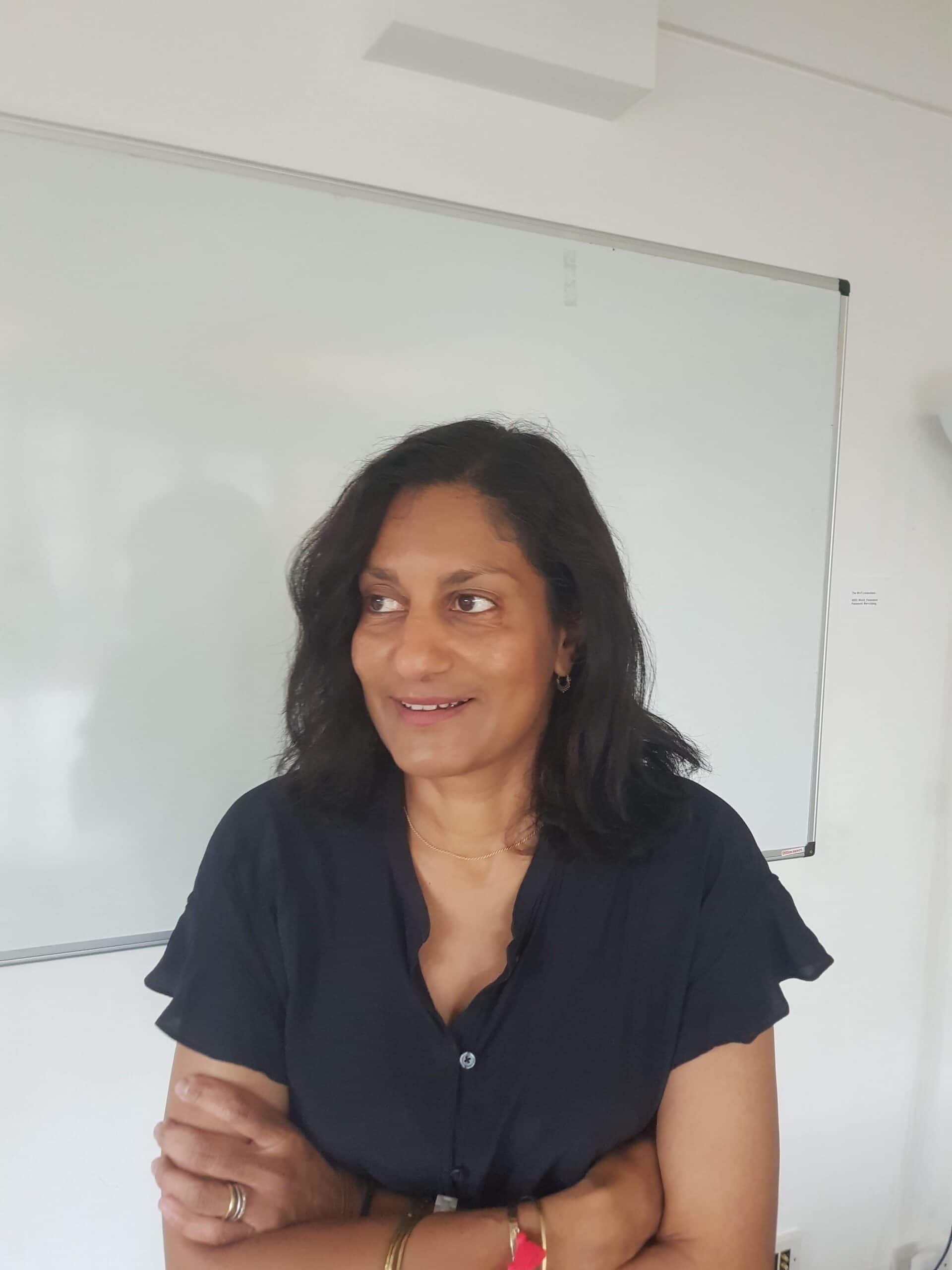
Nita Pillai
Sense about Science
Nita Pillai
Nita is the Head of Programmes and Operations at Sense about Science. She has over 10 years experience working for a range of non-profit organisations working across policy and research. Nita was previously at the World Federation of Societies of Anaesthesiologists (WFSA) where she oversaw their portfolio of projects focused around training and upskilling anaesthsia providers in low and middle income countries. Prior to that, at the Fairtrade Foundation, Nita led the policy and research team before developing the organisation's work on the impact assessment and evaluation of Fairtrade projects. She has extensive experience of working on complex global projects and programmes and working with, and coordinating diverse teams. Nita has also worked at Consumers International, the Overseas Development Institute and ActionAid. Nita also has a PhD in Microbiology and a Masters in Public Health Nutrition.
Work Package 11 runs Citizens' Fora to create opportunities for encounters between representative groups from the general public and experts, policymakers and journalists specialising in the area of climate change.
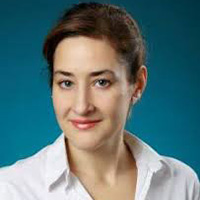
Anna Plater-Zyberk
Polish Academy of Sciences
Anna Plater-Zyberk
Dr Anna Plater-Zyberk has been in the role of Director of the Office of International Cooperation at the Polish Academy of Sciences since 2017. She received her PhD in cognitive linguistics from Jagiellonian University. Plater-Zyberk completed a BA in Management, an MA in Cultural Anthropology, as well as a European Masters in Translation Studies. She is a fellow of the Ryoichi Sasakawa Young Leaders Fellowship Fund and was a visiting scholar at the Metaphor Lab in Amsterdam. Prior to joining the Polish Academy of Sciences, she was highly involved in setting up the newly established Polish funding agency; the National Science Centre (NCN), where she was responsible for building and directing the NCN Office of International Cooperation. In her current role she oversees international relations for the Academy which includes; mobility programmes, international networks and the activities of PAS centres abroad.
Work Package 11 runs Citizens' Fora to create opportunities for encounters between representative groups from the general public and experts, policymakers and journalists specialising in the area of climate change.
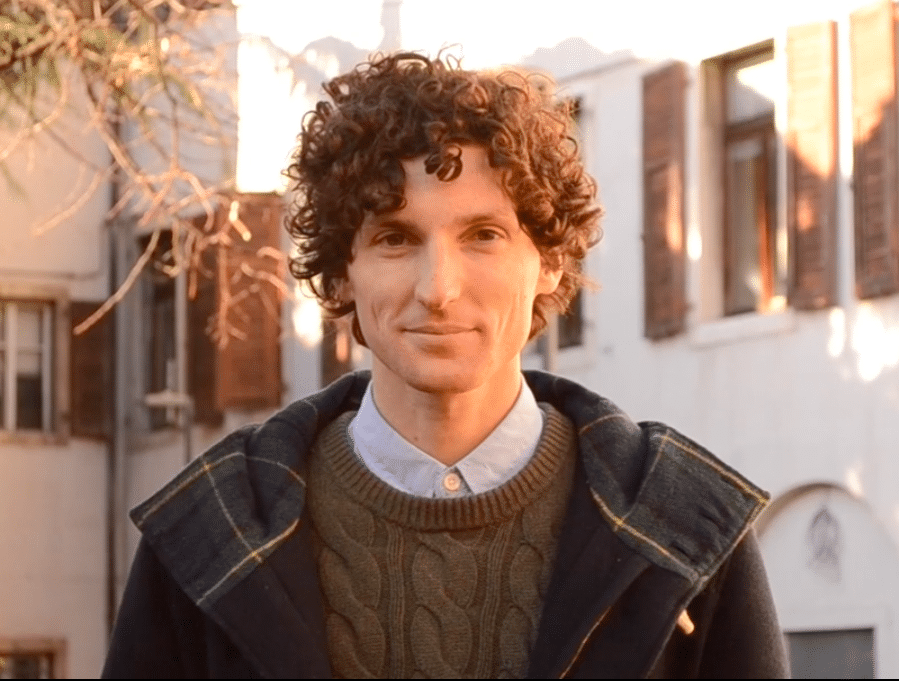
Piero Ronzani
Vita-Salute San Raffaele University
Piero Ronzani
Piero is a postdoctoral research fellow at UniSR, Milan. His fields of research are Behavioral and Experimental Economics. Previously, he worked at the Cognitive and Experimental Economics Laboratory in Trento University and has been visiting the Center for Studies of African Economies in Oxford University. Piero has been investigating the role of poverty in decision-making processes. His research agenda includes studying risk and testing public policies in the lab. Recently, he has been experimenting how to effectively communicate seismic hazard to citizens, in collaboration with the Italian Civil Protection. Piero is passionate about behavioral development economics, lab-in-the-field experiments, and impact evaluation techniques.
WP10 investigates the emotional and cognitive components of trusting behaviour. As in WP 9, it uses lab based behavioural studies to investigate the determinants of judgements of trust and trustworthiness by members of the public and to test the findings of phase 1.
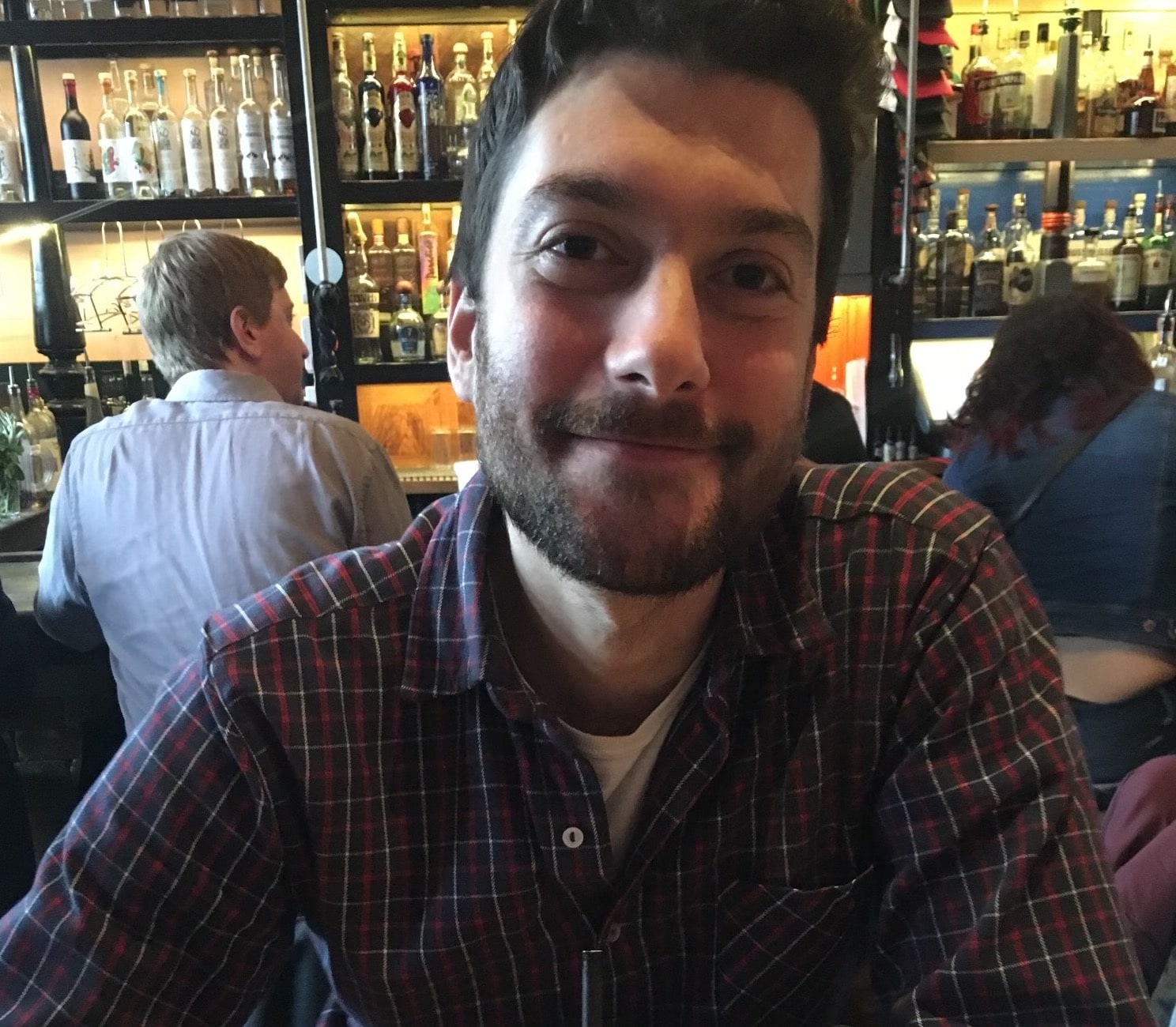
Matthew Shields
Matthew Shields
Dr Matthew Shields is a postdoctoral fellow at University College Dublin. He specializes in philosophy of language and epistemology. His research considers the linguistic and epistemic practices that promote and detract from various forms of inquiry. He received his PhD from Georgetown University and previously worked at the University of Colorado Boulder.
Work Package 7 will investigate the ethical requirements of trustworthy expertise as well as the role of ethical considerations in placing trust in policies based on expert advice.
Till Weber
Newcastle University Business School
Till Weber
Dr Till Weber joined Newcastle University Business School in 2020 as a Lecturer in Economics. His research explores the driving factors of cooperation and norm enforcement in social dilemmas. His main research interests are in the areas of behavioural and experimental economics. He is particularly interested in the study of human cooperation, norm enforcement and investigating cross-cultural differences in decision making. He holds a PhD in Economics from the University of Nottingham, a MSc in Behavioural Economics from the University of Nottingham and a BSc in Economics from the Ludwig-Maximilians-Universitaet Munich.
Work Packages 9 and 10 use lab based behavioural studies to investigate the determinants of judgements of trust and trustworthiness by members of the public and to test the findings of phase 1. Work Package 9 investigates methodological challenges in studying trusting behaviour and the social factors underlying them.


